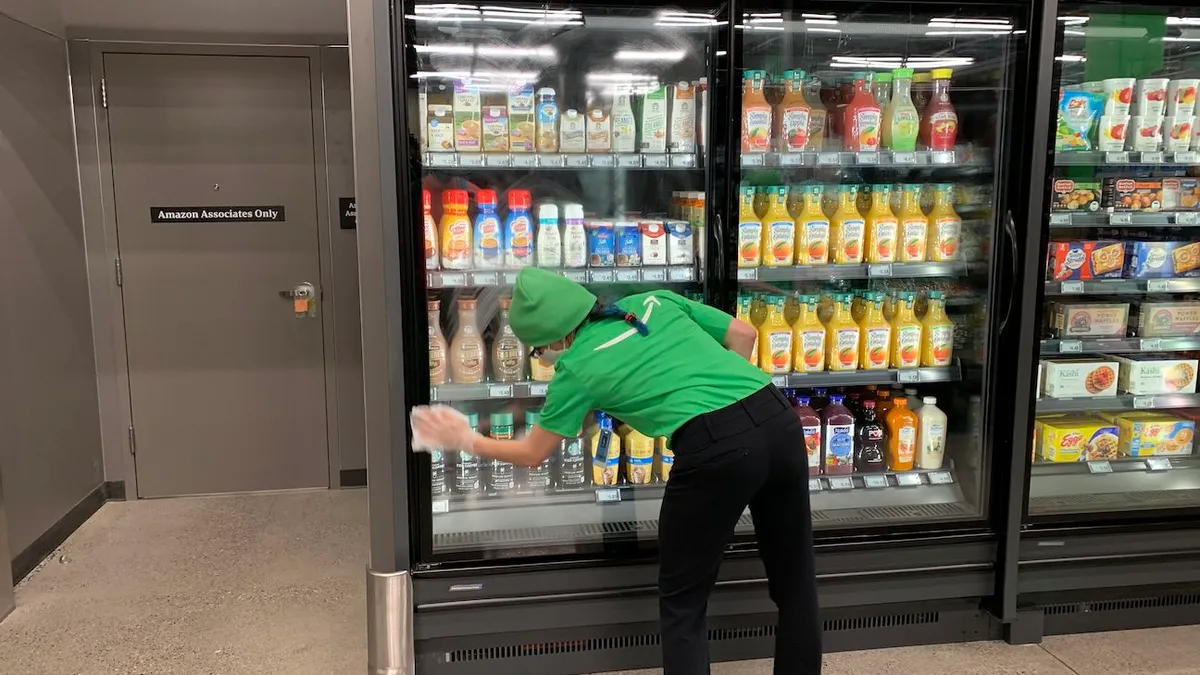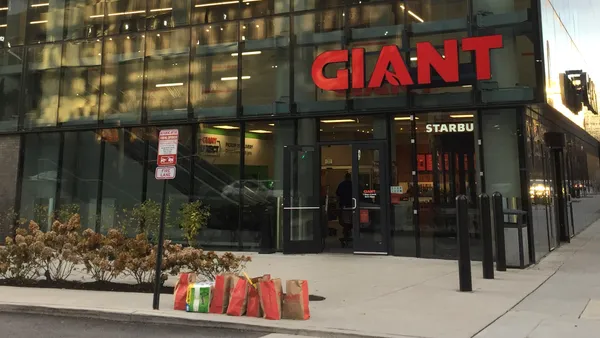Dive Brief:
- Food retailers need to address a misconception among Generation Z — people born in 1997 or later — that only stores offer entry-level opportunities in the industry, a new report on the Gen Z workforce recommends.
- The report from the Food Industry Association (FMI) and Saint Joseph’s University outlines a variety of steps food retailers can take to attract Gen Z hires, like offering career development or furthering educational programs within their organizations. Companies are also advised to market more aggressively the benefits of working in the food retail corporate sphere, reach out earlier to college students, emphasize opportunities for innovation and make positive social impact a focus.
- The report concludes that Gen Z employees’ career goals differ from earlier generations and that food retailers’ messaging isn’t adequately attracting young talent.
Dive Insight:
The key takeaway from the report by FMI and Saint Joseph’s University is that the messaging and recruitment tactics that food retailers use on college campuses for Gen Z talent pool aren't adequately getting through to the generation, whose priorities and life experiences are different from earlier generations.
The report's findings draw on interviews with FMI member executives at national food retail companies and 30 qualitative interviews with college undergraduates studying both business and non-business subjects.
Some of the report’s recommendations zeroed in on concrete solutions, like starting recruitment with underclassmen, using social media to communicate with Gen Z and targeting college careers’ centers for recruitment over popular job boards such as Monster and LinkedIn, to name a few.
The report's suggestions also focused more broadly on the messaging and type of benefits package that appeals to Gen Zers on the job hunt. Today’s undergraduates want to find work that has a purpose, the researchers emphasized, so grocers should focus on conveying to their Gen Z employees how their contributions matter to the overall organization and how food retail jobs have a positive impact on the community.
In addition, Gen Zers want to work for companies that value diversity across their pay grades, which an increasing number of food retailers have been publicly committing to. In October, Kroger revealed its 10-step plan on diversity, equity and inclusion, which included tripling its sourcing from diverse suppliers, working with historically Black colleges and universities on recruitment and providing unconscious bias training to senior leadership. Target, Costco and Giant Food also launched initiatives last year to address inequity or to support underrepresented communities in the industry.
The report also asserted that industries seeing growth and financial stability will be especially attractive to Gen Z workers, whose formative adolescent years took place during the Great Recession. College students are graduating into a precarious economic situation caused by the coronavirus pandemic, so industries that have financially-weathered the public health crisis well may become more appealing.
FMI’s report also detailed elements of a company culture that would attract Gen Z workers, such as continuous learning and professional development opportunities, internal and quick promotions to higher salaries, transparency and technological innovation.











